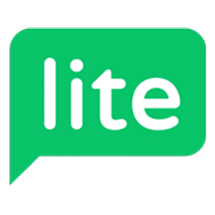Marketo vs Intercom
Hyperise integrates with 100's of sales and marketing tools, many of which are in the Marketing Automation category. With so many to choose from it's sometimes hard to know which is best, but don't worry, we've got your covered.
In this comparison guide we're going to look at the Highlights, Pros, Cons and Pricing of Marketo and Intercom. We'll also delve into the details of which offers the best personalization options within Marketing Automation, with there respective Hyperise integrations
Marketo
Pricing: Marketo offers a wide range of pricing plans based on the features and functionalities that best fit your business needs. Here is a summary of Marketo pricing plans: 1. Basic: $1,000 per month for up to 10,000 contacts 2. Pro: $2,000 per month for up to 30,000 contacts 3. Elite: $4,000 per month for up to 100,000 contacts 4.
Vs
Intercom
Pricing: Intercom pricing starts at $87 per month, which includes basic features such as live chat, team email, and in-app messaging. The pricing increases as you add more features or advanced functionality, with plans ranging up to $1539 per month for enterprise customers. Intercom offers a 14-day free trial for new users, and discounts are available for annual billing. Some features or add-ons may also incur additional costs.Marketo vs Intercom Highlights
Marketo and Intercom are two popular software platforms in the marketing automation and customer communication spaces, but they have different functionalities and target audiences.
Marketo is primarily focused on marketing automation, email marketing, lead management, and analytics. It is designed for B2B companies that need to manage complex sales processes and need advanced features such as lead scoring, nurturing, and attribution reporting.
Intercom, on the other hand, is more focused on customer communication, messaging, and support. It is designed for B2C and SaaS companies that need to communicate with their customers through multiple channels, such as live chat, email, and social media. Intercom also includes a help desk feature that enables businesses to manage customer support tickets and inquiries.
In summary, Marketo is a powerful marketing automation tool, while Intercom is a customer communication and support platform. Businesses should consider their specific needs before choosing between these two solutions.
Marketo vs Intercom Pros
Marketo Pros
- Provide comprehensive marketing automation solutions with superior lead scoring, nurturing and management capabilities.
- Provide advanced analytics and reporting tools to help marketers get a deeper insight into their campaigns and improve their ROI.
- Offer a wide range of integrations with third-party platforms, allowing marketers to easily connect their marketing software with other applications.
- Provide robust email marketing capabilities, including pre-built templates and personalized messaging features to engage with customers.
- Provide personalized website messaging, A/B testing and other tools to optimize the website experience, increase conversions, and reduce bounce rates.
Intercom Pros
- Intercom has a more user-friendly interface and is easier to navigate compared to Marketo.
- Intercom offers an all-in-one solution for customer messaging, support, and marketing automation, while Marketo mainly focuses on marketing automation.
- Intercom allows for precise targeting and personalized messaging, as it tracks user behavior and can trigger messages based on specific actions, while Marketo has a less advanced targeting system.
- Intercom provides real-time customer data and insights, which can be used to improve customer engagement and satisfaction, whereas Marketo has limited real-time insights.
- Intercom integrates seamlessly with numerous third-party apps and tools, including Salesforce, Slack, and Shopify, offering more flexibility and customization options than Marketo.
Marketo vs Intercom Cons
Marketo Cons
- Marketo is known for its complexity and steep learning curve, which can be overwhelming for new users.
- The pricing for Marketo is significantly higher than Intercom, which may not fit within the budget of small to medium-sized businesses.
- Marketo has limited capabilities when it comes to in-app messaging and support, compared to Intercom's robust suite of customer communication tools.
- Marketo's reporting and analytics can be more challenging to navigate and customize, whereas Intercom's visualization and reporting is more user-friendly.
- Marketo lacks a unified messaging inbox where conversations can be managed across different channels (such as email, chat, and social media), unlike Intercom.
Intercom Cons
- Intercom has limited functionality when it comes to email marketing compared to Marketo
- Intercom's pricing structure can be confusing and may end up being more expensive than Marketo for larger businesses
- Marketo has more comprehensive reporting tools than Intercom
- Intercom's customer support doesn't include phone support, which can be a downside for some businesses
- Marketo has more integrations with third-party tools and platforms compared to Intercom
- Intercom's lead scoring functionality is not as advanced as Marketo's
- Marketo offers more advanced automation and segmentation options for targeted marketing efforts
- Intercom's landing page and form customization options are limited compared to Marketo's
- Marketo offers ABM (Account-Based Marketing) capabilities that Intercom does not have.
Marketo & Intercom Hyperise Integrations
Marketo uses the HTML code embed method to integrate with Hyperise, giving a simple way to add personalized images to your messages.
Marketo makes the following data points available to Hyperise, to enable personalization in images used in outreach and linked out to your personalized website landing pages.
- Using business Email passed from Marketo, Hyperise is able to enrich business logo and website screenshots. In some cases, with a business Email we're also able to enrich profile images, subject to the business email having a publicly available profile.
- Using business Website passed from Marketo, Hyperise is able to enrich business logo and website screenshots.
- Business name
- Job title
Marketo Integration Guide
Intercom uses the HTML code embed method to integrate with Hyperise, giving a simple way to add personalized images to your messages.
Intercom makes the following data points available to Hyperise, to enable personalization in images used in outreach and linked out to your personalized website landing pages.
- Using business Email passed from Intercom, Hyperise is able to enrich business logo and website screenshots. In some cases, with a business Email we're also able to enrich profile images, subject to the business email having a publicly available profile.
- Business name
- Using business Website passed from Intercom, Hyperise is able to enrich business logo and website screenshots.
Intercom Integration Guide
 vs
vs  vs
vs  vs
vs  vs
vs  vs
vs 


 vs
vs 
 vs
vs  vs
vs  vs
vs  vs
vs  vs
vs  vs
vs  vs
vs  vs
vs  vs
vs  vs
vs 









 vs
vs  vs
vs 
























